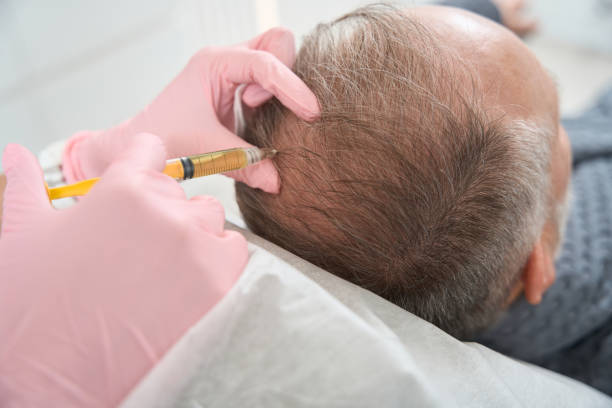Egg Donation: Understanding the Process, Requirements, and Recovery
Egg donation is a life-changing process that helps individuals and couples who are unable to conceive on their own. It involves a woman donating her eggs to another person or couple in need, often through in vitro fertilization (IVF). If you're considering becoming an egg donor or are curious about how the process works, here's a breakdown of what to expect, who might be a good candidate, and the steps involved.

Egg donation represents a critical component of assisted reproductive technology, offering hope to those who cannot produce viable eggs themselves. The process involves careful screening, medication protocols, and a minor surgical procedure to retrieve eggs from a donor. These eggs are then fertilized in a laboratory setting before being transferred to a recipient’s uterus or that of a gestational carrier. While the physical commitment spans several weeks, the emotional and financial implications extend much further for all parties involved.
What Is the Egg Donation Process?
The egg donation journey typically spans 3-4 months from application to completion. Initially, potential donors undergo comprehensive screening, including medical history reviews, physical examinations, genetic testing, and psychological evaluations. Once approved, donors begin medication protocols to synchronize their cycle with the recipient’s and stimulate their ovaries to produce multiple eggs.
The stimulation phase lasts approximately 10-14 days, during which donors receive daily hormone injections that require careful monitoring through blood tests and ultrasounds. When the follicles reach optimal maturity, a trigger shot is administered, followed by the egg retrieval procedure 36 hours later.
The retrieval itself is a 20-30 minute outpatient procedure performed under sedation. Using ultrasound guidance, a physician inserts a thin needle through the vaginal wall to extract eggs from the follicles. After retrieval, donors typically rest for 1-2 hours before being discharged with a companion to begin their recovery.
What Are the Requirements for Egg Donors?
Fertility clinics maintain strict eligibility criteria to ensure donor and offspring health. While requirements vary slightly between programs, most clinics require donors to:
- Be between 21-32 years of age (though some accept donors up to age 35)
- Have a healthy BMI (typically between 18-28)
- Be physically and emotionally healthy
- Have no personal or significant family history of genetic disorders or hereditary diseases
- Be free from sexually transmitted infections
- Not use tobacco or illicit drugs
- Have regular menstrual cycles
- Be willing to commit to the time requirements of the donation process
Psychological screening is equally important, as clinics assess a donor’s emotional stability and understanding of the long-term implications of donation. Many programs also prefer donors who have completed some college education and can provide detailed family medical histories.
How Long Does Recovery From Egg Donation Take?
Recovery from egg donation is relatively quick for most women. Immediately after the procedure, donors may experience cramping, bloating, and spotting. These symptoms typically subside within a few days. Most donors return to desk jobs and light activities within 24-48 hours, though strenuous exercise and sexual activity are restricted for about two weeks to prevent complications.
The first menstrual period after donation may be heavier or lighter than usual as the body readjusts its hormonal balance. Complete physical recovery, including hormonal normalization, generally occurs within 2-4 weeks. Emotional recovery varies by individual, with some donors experiencing a range of feelings from pride and fulfillment to occasional sadness or curiosity about the outcomes.
Can Women Over 35 Donate Eggs?
While most egg donation programs prefer donors under 32, some clinics do accept donors over 35 in specific circumstances. The age restriction primarily relates to egg quality and quantity, which naturally decline with age. After 35, women typically produce fewer eggs during stimulation, and those eggs carry an increased risk of chromosomal abnormalities.
Donors over 35 who are accepted into programs often undergo additional screening tests to assess their ovarian reserve and egg quality. These may include antimüllerian hormone (AMH) testing, antral follicle counts, and more extensive genetic screening. Even with passing these assessments, older donors should understand that their compensation might be lower due to the potentially reduced number of viable eggs retrieved.
Medical professionals generally advise women interested in donation to complete the process before turning 35 for optimal outcomes. However, women over 35 with exceptional health histories and proven fertility may still be considered on a case-by-case basis.
How To Find Reputable Egg Donation Services in Your Area
Finding a reputable egg donation program requires careful research. Start by seeking fertility clinics with established donor programs that are members of professional organizations like the American Society for Reproductive Medicine (ASRM) or the Society for Assisted Reproductive Technology (SART). These affiliations indicate adherence to ethical guidelines and professional standards.
Many prospective donors begin their search online, but in-person consultations provide valuable insights into a clinic’s professionalism and approach. When evaluating local services, consider factors like clinic success rates, donor support systems, compensation structures, and transparency regarding the process.
Comparing Egg Donation Programs and Compensation
Compensation and program structures vary significantly between donation agencies and fertility clinics across the United States. Understanding these differences helps potential donors make informed decisions about where to apply.
| Program Type | Average Compensation | Time Commitment | Notable Features |
|---|---|---|---|
| Fertility Clinic Direct Programs | $5,000-$10,000 | 3-4 months | Medical care directly from treating physicians; often local |
| Agency-Managed Donations | $8,000-$15,000 | 3-6 months | Wider recipient matching options; may require travel |
| Known Donor Programs | Varies (often lower) | 2-3 months | Donation to friend/family; different legal considerations |
| Identity-Release Programs | $7,000-$12,000 | 3-4 months | Future contact with offspring possible at adulthood |
| Research Donation Programs | $3,000-$5,000 | 2-3 months | Eggs used for scientific research rather than reproduction |
Prices, rates, or cost estimates mentioned in this article are based on the latest available information but may change over time. Independent research is advised before making financial decisions.
Compensation typically covers the donor’s time, discomfort, and inconvenience rather than payment for the eggs themselves. Additional expenses like travel, lodging, and lost wages may be covered separately. Many programs offer higher compensation for donors with specific educational backgrounds, physical characteristics, or previous successful donations.
The Relationship Between Egg and Sperm Donation
Egg and sperm donation are both essential components of assisted reproduction, though they differ significantly in process and commitment. While sperm donation is a relatively simple procedure requiring minimal time investment, egg donation involves a substantial medical process with hormone treatments and a surgical procedure.
The compensation difference reflects this disparity in commitment—egg donors typically receive $5,000-$15,000 per cycle, while sperm donors receive $50-$200 per accepted sample. Both types of donors undergo screening for genetic conditions and infectious diseases, though egg donors face more extensive medical and psychological evaluations.
Some fertility clinics coordinate both egg and sperm donation programs, allowing for comprehensive assisted reproduction services under one roof. For recipients requiring both donor eggs and sperm, this integration can streamline the process and potentially reduce overall costs.
Egg donation represents a significant medical, emotional, and time commitment that helps create families for those struggling with infertility. While the process involves medical risks and personal considerations, many donors find the experience deeply rewarding. Understanding the requirements, procedures, and recovery expectations allows potential donors to make informed decisions about participation in this important aspect of assisted reproduction.
This article is for informational purposes only and should not be considered medical advice. Please consult a qualified healthcare professional for personalized guidance and treatment.




